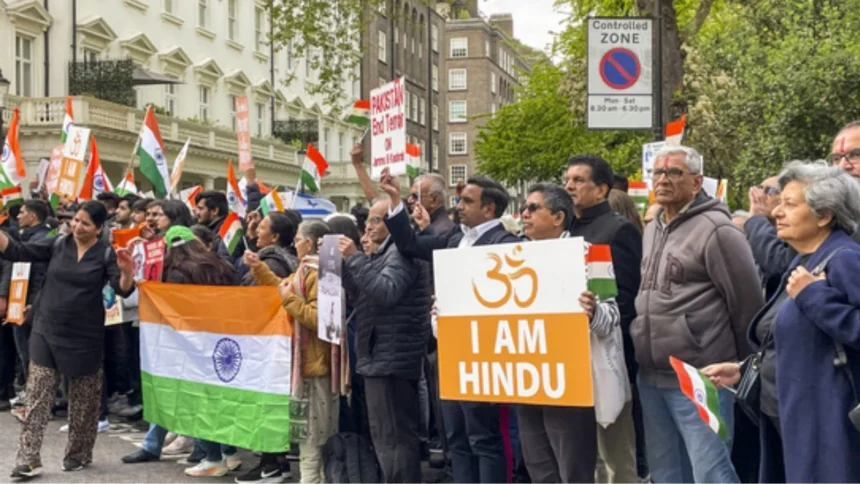Introduction

The Pahalgam terror attack that killed 26 civilians in Jammu and Kashmir on April 22, 2025, has triggered a sharp diplomatic and strategic response from India. As evidence mounts linking the attack to The Resistance Front (TRF), a proxy of Lashkar-e-Taiba (LeT), India has mounted a comprehensive global offensive. Here’s a breakdown of the top 7 ways India is responding to this heinous act of terrorism on the international stage.
1. Engaging Non-Permanent UNSC Members
External Affairs Minister Dr. S Jaishankar has contacted foreign ministers from the eight current non-permanent members of the United Nations Security Council (UNSC), including Algeria, Denmark, Greece, Guyana, Panama, Sierra Leone, Slovenia, and Somalia. The goal: highlight cross-border terrorism and garner support for international accountability.
2. Phone Call With UN Secretary General Guterres
UN Secretary General Antonio Guterres condemned the attack unequivocally during a call with Jaishankar. The conversation underscored the need for justice and accountability for the perpetrators, planners, and backers of the Pahalgam attack.
3. Highlighting Pakistan’s Involvement
India has squarely blamed Pakistan-based terror groups for the attack, citing TRF’s admission and historical links to LeT. While Pakistan denies involvement and demands a neutral probe, India is presenting intelligence to global allies to isolate Pakistan diplomatically.
4. Push for Stronger UNSC Language
Although the UNSC condemned the attack in its April 25 statement, India found the language too soft—largely due to Pakistan’s influence in negotiations. Efforts are ongoing to ensure future resolutions carry stronger language against terrorism and state sponsors.
5. PM Modi’s Global Outreach
World leaders including US President Donald Trump, French President Emmanuel Macron, Israeli PM Benjamin Netanyahu, and UAE President Mohamed Bin Zayed spoke to Prime Minister Narendra Modi to express solidarity. These calls emphasized global recognition of the gravity of the Pahalgam attack and India’s resolve.
6. Military Preparedness and Strategic Freedom
PM Modi has given the Indian Armed Forces complete operational freedom to determine the mode and timing of retaliation. The government has promised the “harshest response” to those responsible, affirming that the Pahalgam attack will not go unanswered.
7. Informing the World About Cross-Border Terror
India has launched a global awareness campaign on the long-standing issue of cross-border terrorism. Through embassies and diplomatic missions, India is sharing evidence of Pakistan’s terror links to shape global consensus against state-sponsored violence.
India’s Diplomatic Offensive Against Pakistan
In the last few days, India reached out to various world capitals apprising the nations about the “cross-border” links to the terror attack.
Several world leaders, including US President Donald Trump, French President Emmanuel Macron, Israeli Prime Minister Benjamin Netanyahu, Egyptian President Abdel Fattah El-Sisi, Jordan’s King Abdullah II and Italian Prime Minister Giorgia Meloni, also dialled Prime Minister Narendra Modi to condemn the attack.
Japanese Prime Minister Shigeru Ishiba, UAE President Mohamed Bin Zayed Al Nahyan, Iranian President Masoud Pezeshkian, Sri Lankan President Anura Kumara Dissanayake, Dutch Prime Minister Dick Schoof, US Vice President J D Vance, Australian Prime Minister Anthony Albanese and Nepal Prime Minister KP Sharma Oli also spoke to Modi.
On Sunday, PM Modi said the “perpetrators and conspirators” of the Pahalgam attack will be “served with the harshest response”.
He asserted on Tuesday that the armed forces have “complete operational freedom” to decide on the mode, targets and timing of India’s response to the Pahalgam attack. PM Modi also affirmed that it is the national resolve to deal a crushing blow to terrorism, government sources said.
Conclusion
The Pahalgam terror attack has united India’s foreign policy and national security apparatus toward a singular goal: justice. Through a mix of diplomatic outreach, strategic communication, and military preparedness, India is ensuring that this attack is not forgotten nor excused.
For a historical parallel on Pakistan’s asymmetric strategy, read our post on the 1993 CIA report warning about Pakistan’s use of terror as a state policy.
Stay updated as India continues its global campaign against terrorism. Subscribe for more in-depth geopolitical insights.








